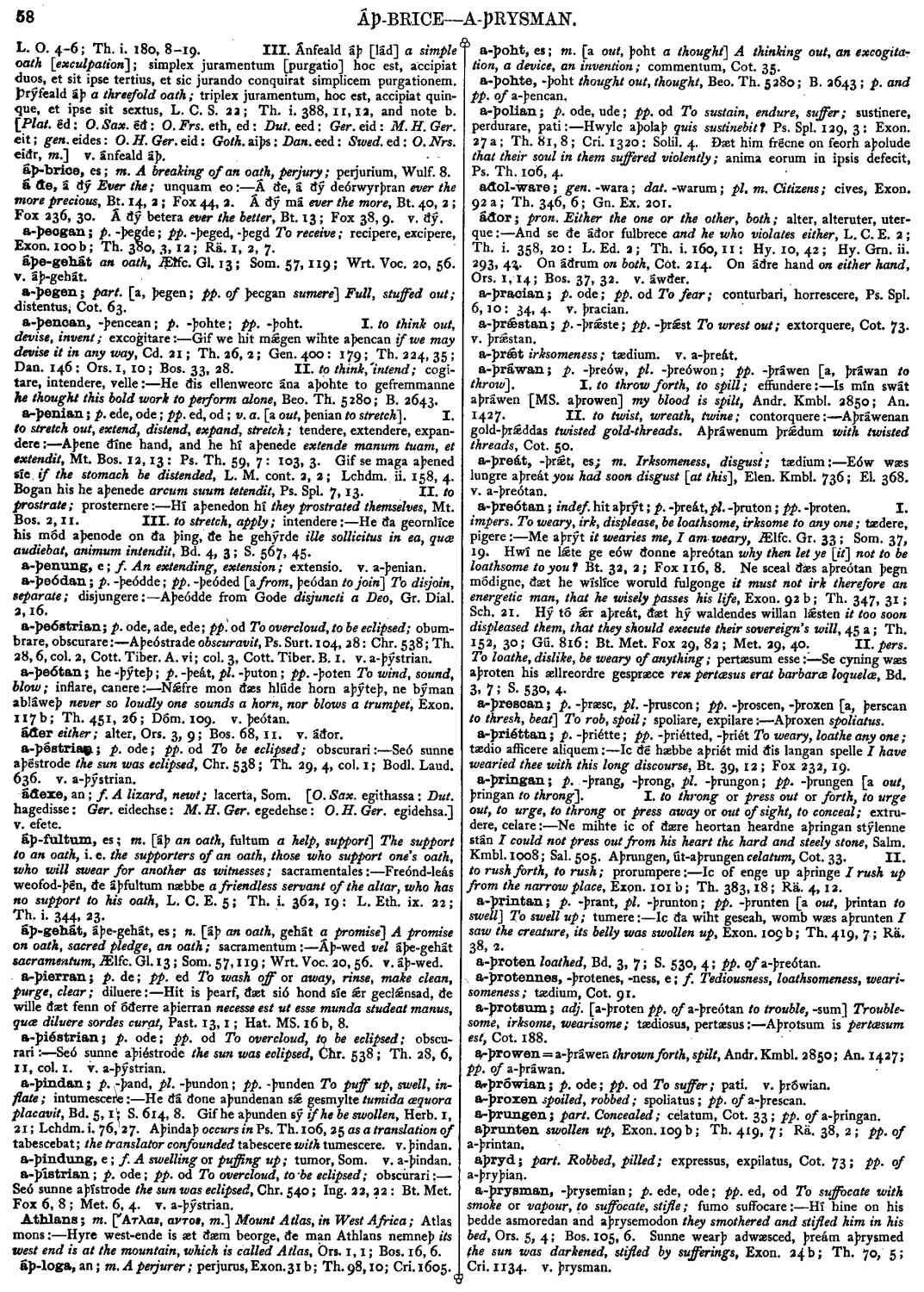a-þreótan
- verb [ strong ]
-
Me aþrýt
it wearies me, I am weary,
- Ælfc. Gr. 33; Som. 37, 19 .
-
Hwí ne lǽte ge eów ðonne aþreótan
why then let ye [it] not to be loathsome to you?
- Bt. 32, 2 ; Fox 116, 8 .
-
Ne sceal ðæs aþreótan þegn módigne, ðæt he wíslíce woruld fulgonge
it must not irk therefore an energetic man, that he wisely passes his life,
- Exon. 92 b; Th. 347, 31 ;
- Sch. 21 .
-
Hý tó ǽr aþreát, ðæt hý waldendes willan lǽsten
it too soon displeased them, that they should execute their sovereign's will,
- 45 a ; Th. 152, 30 ;
- Gú. 816 :
- Bt. Met. Fox 29, 82 ;
- Met. 29, 40 .
-
Se cyning wæs aþroten his ællreordre gespræce
rex pertæsu erat barbaræ loquelæ,
- Bd. 3, 7 ; S. 530, 4 .
Bosworth, Joseph. “a-þreótan.” In An Anglo-Saxon Dictionary Online, edited by Thomas Northcote Toller, Christ Sean, and Ondřej Tichy. Prague: Faculty of Arts, Charles University, 2014. https://bosworthtoller.com/2512.
Checked: 1